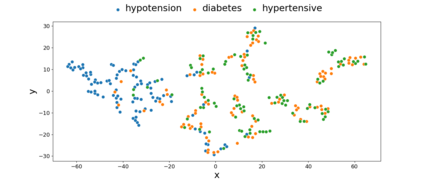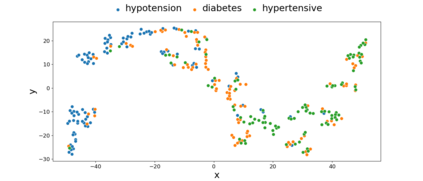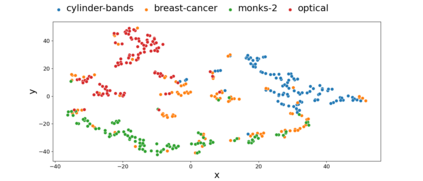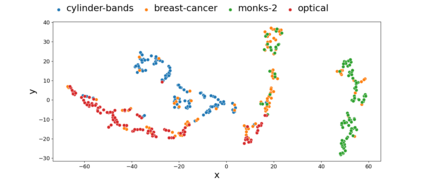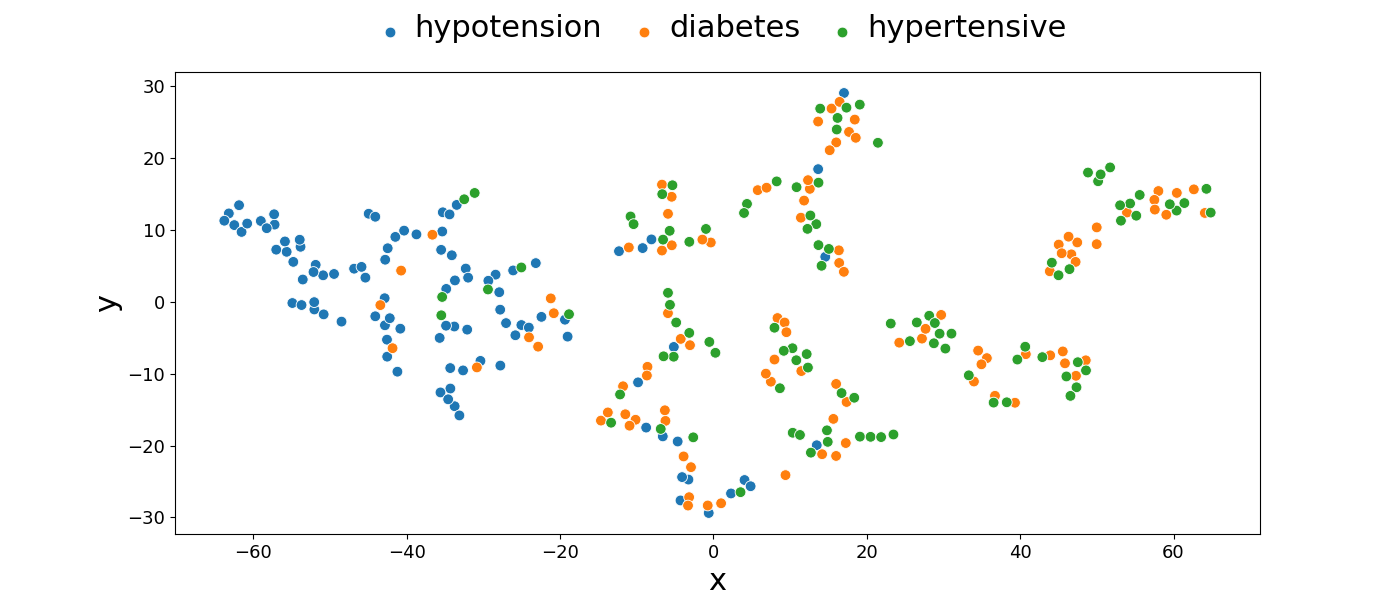Effectively representing heterogeneous tabular datasets for meta-learning remains an open problem. Previous approaches rely on predefined meta-features, for example, statistical measures or landmarkers. Encoder-based models, such as Dataset2Vec, allow us to extract significant meta-features automatically without human intervention. This research introduces a novel encoder-based representation of tabular datasets implemented within the liltab package available on GitHub https://github.com/azoz01/liltab. Our package is based on an established model for heterogeneous tabular data proposed in [Iwata and Kumagai, 2020]. The proposed approach employs a different model for encoding feature relationships, generating alternative representations compared to existing methods like Dataset2Vec. Both of them leverage the fundamental assumption of dataset similarity learning. In this work, we evaluate Dataset2Vec and liltab on two common meta-tasks - representing entire datasets and hyperparameter optimization warm-start. However, validation on an independent metaMIMIC dataset highlights the nuanced challenges in representation learning. We show that general representations may not suffice for some meta-tasks where requirements are not explicitly considered during extraction. [Iwata and Kumagai, 2020] Tomoharu Iwata and Atsutoshi Kumagai. Meta-learning from Tasks with Heterogeneous Attribute Spaces. In Advances in Neural Information Processing Systems, 2020.
翻译:暂无翻译

